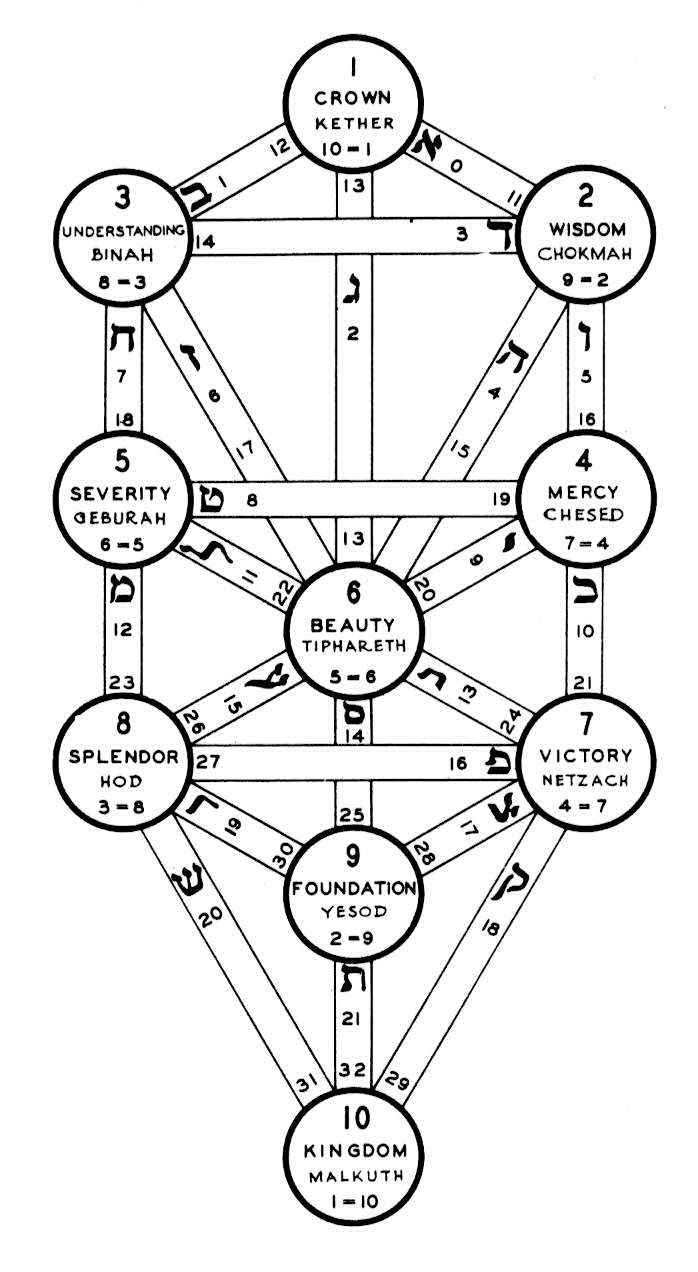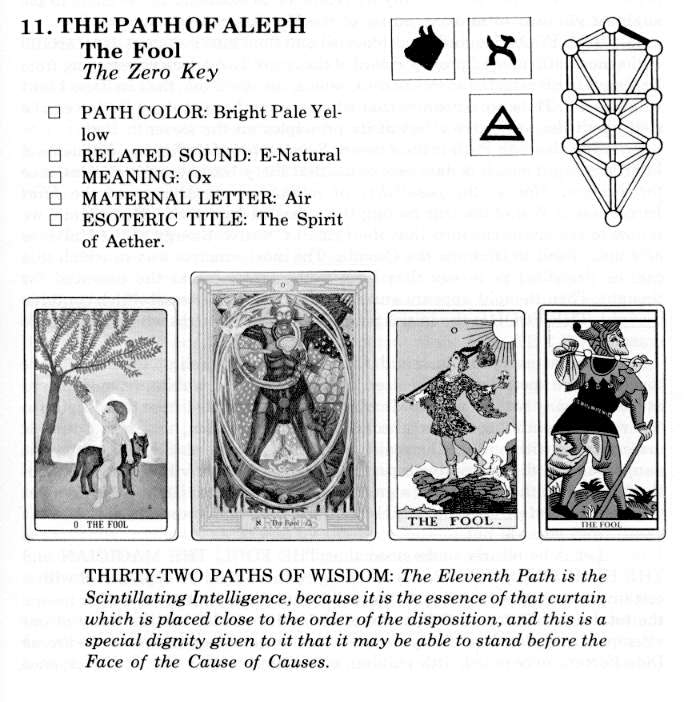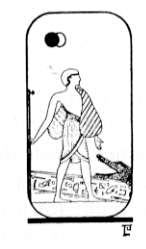
| rosanista.com | ||
| Simplified Scientific Christianity |


This Arcanum has been variously named the Atheist, the Fool, the Crocodile. We see a man without eyes walking along the edge of a precipice, carrying a bag flung across his shoulder, guiding himself by means of a frail walking stick. In the abyss below the precipice a crocodile lies in wait with open jaws. A broken and fallen column, or obelisk, lies immediately at his feet, covered with many mystic inscriptions.
The meaning of this glyph is by no means readable at first sight. Its simplest interpretation refers to the worldly man without knowledge of spiritual realities, who may fancy himself wise and powerful. The staff of worldly wisdom upon which he leans is frail, and the double bag in which he carries his worldly wealth is of no avail to save him from the crocodile which he does not see. His eyes are blind to the light of the spirit and its truth which, represented by a sun partially obscured by clouds, is nevertheless shining in the sky, visible to those who have eyes. The picture may be taken as representing the Epicurean materialist who lives but to "eat, drink and be merry, for tomorrow we die." In some Tarot systems, this man is not blind but only blindfolded, suggesting that he chooses to walk in the darkness rather than the light, regardless of consequences.
To such heedless ones are directed the terrible denunciations of the Old Testament prophets. We have "fools" amongst us today as in past centuries, and the words of the prophets apply now as of yore. Many of the Old Testament prophecies, the entire twenty-first chapter of Matthew, and many pages of the Book of Revelation, read like excerpts from a modern-day periodical. The poor (in spirit) ye have always with you, and these "poor" are the "Fool" of the Tarot.
As stated at the outset of our exploration of the Tarot mysteries, the Tarot, like the Bible and other Wisdom Books, outlines in symbol the steps and stages of the Path of Initiation or Illumination, forewarning of trials and temptations, foreshowing triumphs and delights. They represent for the modern neophyte an ideographic approach to the inner worlds, and their ideograms reach back into nameless epochs of past evolution, back to the dawn of human consciousness when the germ of mind was given to primitive man by cosmic Hierophants. The first Temples of Initiation were built for man when he became a "thinking animal," and there were as many of these Temples built, in various parts of the world, as there were kinds of people who needed them. Yet the basic Teaching was always and everywhere the same, though adapted to varying conditions in human life-both external and internal — to the outward conditions of space and time, to the inward conditions of heredity and the spirit's urge toward perfection.
The first three Arcanes give the cosmic pattern of the perfect man and the perfect woman. The first septenary of the Arcana outlines the path of instruction for the disciple.
From the seventh to the fourteenth Arcana, the second septenary, deeper aspects of the divine work are symbolically presented. In the fourteenth Arcanum we note the inception of the alchemical processes by means of which the new or "celestial body" of the New Age is to be fashioned.
In the septenary, from the fifteenth to the twenty-first Arcana, these alchemical processes are raised to a higher plane; the nineteenth, twentieth and twenty-first Arcana show the completion of the Great Work.
The twenty-second Arcanum voices a final warning that the day of accounting is at hand, and no time is to be lost in idleness and procrastination. "Now is the day of salvation."
— Corinne Heline

|

|

|
|
|
Contemporary Mystic Christianity |
|
|
This web page has been edited and/or excerpted from reference material, has been modified from its original version, and is in conformance with the web host's Members Terms & Conditions. This website is offered to the public by students of The Rosicrucian Teachings, and has no official affiliation with any organization. | Mobile Version | |
|